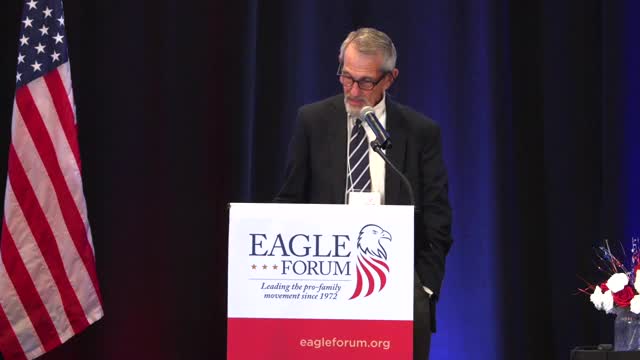Diversity Equity and Inclusion Threatens Medical Meritocracy
October 21, 2024 | National Eagle Forum, Utah Lobbyist / NGO, Utah Legislative Branch, Utah
This article was created by AI summarizing key points discussed. AI makes mistakes, so for full details and context, please refer to the video of the full meeting. Please report any errors so we can fix them. Report an error »

In a recent government meeting, a detailed analysis of the implications of diversity, equity, and inclusion (DEI) initiatives in medical education and healthcare was presented, raising significant concerns about their impact on patient care and the medical profession. The discussion centered around a systematic review conducted by researchers from the University of Central Florida, which examined over 30 studies on communication between black patients and physicians of varying racial backgrounds. The findings indicated that the anticipated benefits of racial concordance in physician-patient communication were largely unfounded, with instances of better communication occurring more frequently between black patients and white physicians.
The speaker argued that the push for DEI in medical school admissions—such as eliminating standardized testing requirements and prioritizing holistic assessments—could lead to a decline in healthcare effectiveness. They emphasized that merit should not be sacrificed for diversity, warning that such practices could compromise the quality of medical professionals entering the field.
The meeting also highlighted troubling examples of how DEI principles have been applied in healthcare settings. During the COVID-19 pandemic, certain states implemented algorithms that prioritized treatment based on race, reserving scarce monoclonal antibodies for black patients regardless of their medical condition compared to white patients. This approach, which was later challenged in court, was criticized as a dangerous precedent that undermines the principle of providing care based on medical need rather than skin color.
Furthermore, the discussion touched on the concept of inclusion within medical school admissions, suggesting that it often favors candidates with specific political ideologies over those with diverse backgrounds and experiences. A case was cited involving a military veteran whose application was rejected due to a perceived lack of community service, despite his combat experience.
Overall, the speaker contended that DEI initiatives, while well-intentioned, have become illiberal and discriminatory, threatening the foundational meritocratic values of the medical profession. They called for a reevaluation of these policies, arguing that they could lead to a generation of physicians more focused on activism than on patient care. The meeting underscored the ongoing debate about the role of DEI in shaping the future of healthcare and medical education in the United States.
The speaker argued that the push for DEI in medical school admissions—such as eliminating standardized testing requirements and prioritizing holistic assessments—could lead to a decline in healthcare effectiveness. They emphasized that merit should not be sacrificed for diversity, warning that such practices could compromise the quality of medical professionals entering the field.
The meeting also highlighted troubling examples of how DEI principles have been applied in healthcare settings. During the COVID-19 pandemic, certain states implemented algorithms that prioritized treatment based on race, reserving scarce monoclonal antibodies for black patients regardless of their medical condition compared to white patients. This approach, which was later challenged in court, was criticized as a dangerous precedent that undermines the principle of providing care based on medical need rather than skin color.
Furthermore, the discussion touched on the concept of inclusion within medical school admissions, suggesting that it often favors candidates with specific political ideologies over those with diverse backgrounds and experiences. A case was cited involving a military veteran whose application was rejected due to a perceived lack of community service, despite his combat experience.
Overall, the speaker contended that DEI initiatives, while well-intentioned, have become illiberal and discriminatory, threatening the foundational meritocratic values of the medical profession. They called for a reevaluation of these policies, arguing that they could lead to a generation of physicians more focused on activism than on patient care. The meeting underscored the ongoing debate about the role of DEI in shaping the future of healthcare and medical education in the United States.
View full meeting
This article is based on a recent meeting—watch the full video and explore the complete transcript for deeper insights into the discussion.
View full meeting

